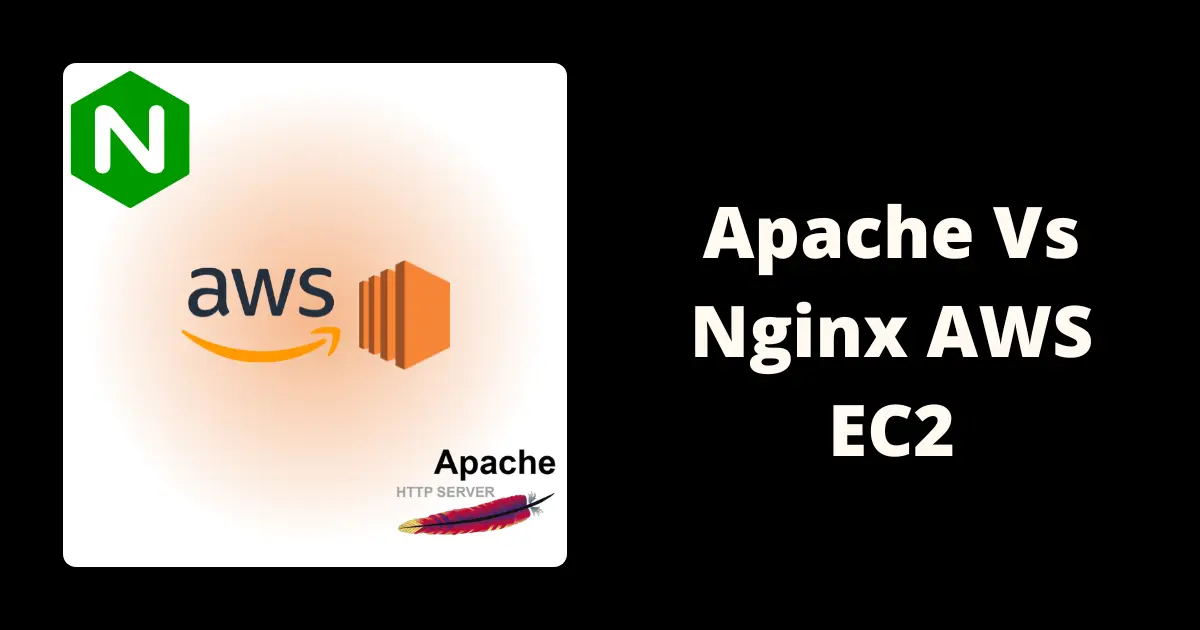Choosing Between Apache and NGINX for AWS EC2 Ubuntu Instances

Overview
In the fast-paced world of software development, DevOps has become the backbone of many organizations looking to optimize their workflows and enhance productivity. Automation is a crucial part of any DevOps process, and choosing the right tools can make all the difference.
In this blog, we will explore the top 11 DevOps automation tools that are essential for boosting productivity, streamlining development, and ensuring smooth integration between teams.
Introduction
When deploying web applications on AWS EC2 instances, choosing the right web server is crucial for ensuring performance, security, and ease of management. Among the many options available, Apache and NGINX are the two most popular web servers, each with its strengths and weaknesses. Understanding the differences between them can help you select the best solution for your specific use case.
In this blog post, we will delve into the comparison of Apache and NGINX for AWS EC2 Ubuntu instances. We will explore their features, performance characteristics, and use cases, providing you with a comprehensive overview to guide your decision-making process. Whether you prioritize high traffic handling, extensive configuration capabilities, or security features, we aim to equip you with the knowledge needed to make the best choice for your web applications.
How to Choose Between Apache and NGINX
What is Apache?
Apache HTTP Server, commonly referred to as Apache, is one of the oldest and most widely used web servers. Known for its flexibility and extensive feature set, Apache supports a wide range of modules, enabling developers to customize their server environment. This web server uses a process-based architecture, which can be resource-intensive, especially under heavy loads.
What is NGINX?
NGINX, pronounced as "engine-x," is a modern web server known for its high performance, efficiency, and scalability. It utilizes an event-driven architecture, allowing it to handle many concurrent connections with lower resource consumption compared to traditional servers like Apache. NGINX is often used as a reverse proxy and load balancer, making it ideal for serving high-traffic websites.
Why Choose One Over the Other?
The choice between Apache and NGINX depends on various factors, including your specific application needs, expected traffic levels, and the desired level of customization. While Apache offers a rich feature set with extensive configuration options, NGINX excels in performance and resource efficiency, especially for serving static content and handling large numbers of simultaneous connections.
Benefits of Apache
- Feature-Rich Environment: Apache provides a wide array of features through its module system, allowing for extensive customization. This includes URL rewriting, authentication mechanisms, and more.
- .htaccess Support: Apache allows for per-directory configuration using
.htaccessfiles, enabling developers to manage settings on a directory level without requiring server-level access. - Robust Community Support: With a long history, Apache has a large community of users and extensive documentation, making it easier to find solutions to problems and best practices.
Benefits of NGINX
- Superior Performance: NGINX is optimized for speed and can serve static files more efficiently than Apache. Its event-driven architecture allows it to handle thousands of concurrent connections with minimal resource usage.
- Scalability: NGINX is built to scale, making it an ideal choice for high-traffic applications. It excels in scenarios where resource efficiency is critical.
- Versatile Use Cases: Beyond being a web server, NGINX can function as a reverse proxy, load balancer, and HTTP cache, providing added flexibility in managing web traffic.
Discover how we can help you optimize your server setup today!
Comparing Apache and NGINX
Performance
In performance comparisons, NGINX generally outperforms Apache, particularly in high-load scenarios. Its event-driven architecture allows it to handle many simultaneous connections with lower memory usage, making it suitable for modern web applications that experience spikes in traffic. Conversely, Apache's process-based model can lead to higher resource consumption under similar conditions.
Resource Usage
When it comes to resource usage, NGINX is typically more efficient. It consumes less CPU and memory than Apache, especially when serving static files. This efficiency translates into cost savings when running applications on cloud platforms like AWS, where resource usage directly impacts your bill.
Configuration and Customization
Apache shines in its configurability, allowing developers to customize server settings through a variety of modules. The ability to use .htaccess files for directory-level configuration adds a layer of convenience for developers who need to make frequent changes without accessing the main server configuration.
In contrast, NGINX uses a more streamlined configuration format that may be less intuitive for users familiar with Apache’s system. However, once mastered, many users appreciate NGINX's clear and concise configuration files.
Security
Both servers provide robust security features, but they approach it differently. Apache has a rich set of modules for authentication and authorization, making it easy to secure web applications. On the other hand, NGINX focuses on security through efficiency, allowing it to handle malicious requests more effectively due to its architecture.
When to Use Apache
Apache is often the best choice for:
- Feature-Rich Applications: If your application requires specific modules or features that are best managed through Apache's configuration, it’s the preferred option.
- Legacy Systems: For applications built on older technologies that rely heavily on
.htaccessfiles, Apache may be the better choice. - Shared Hosting Environments: Apache's compatibility and feature set make it suitable for shared hosting scenarios where users may not have server-level access.

When to Use NGINX
NGINX is often favored for:
- High-Traffic Websites: When you expect significant traffic and need a server that can scale efficiently while consuming fewer resources, NGINX is the go-to option.
- Serving Static Content: If your application involves serving a large number of static files, NGINX excels in this area due to its performance optimization.
- Modern Applications: For applications that utilize microservices or require reverse proxy capabilities, NGINX's architecture aligns well with these needs.
Common Setup: Using Both Servers
In many cases, a hybrid approach utilizing both Apache and NGINX can provide the best of both worlds. For example, you can configure NGINX as a reverse proxy in front of an Apache server. In this setup, NGINX handles incoming requests, serves static content, and manages SSL termination, while Apache processes dynamic requests. This combination leverages NGINX's performance advantages while allowing Apache to manage the more complex configurations.
We’re here to help you achieve your goals!
Quick Summary
Choosing between Apache and NGINX for AWS EC2 Ubuntu instances ultimately depends on your specific application needs. If you prioritize performance and scalability, NGINX is often the better choice. However, if your application requires rich features and extensive configurability, Apache may be more suitable. For many modern applications, using NGINX as a reverse proxy in front of Apache can provide the optimal solution.
FAQs
1. What are the main differences between Apache and NGINX?
The primary differences between Apache and NGINX lie in their architectures and performance. Apache uses a process-based model, which can be resource-intensive under heavy load, while NGINX employs an event-driven model, making it more efficient in handling high traffic with lower memory usage.
2. Is NGINX better for high-traffic websites?
Yes, NGINX is well-suited for high-traffic websites. Its event-driven architecture allows it to handle thousands of simultaneous connections with minimal resource consumption, making it a better choice for scalable applications that need to manage large volumes of traffic efficiently.
3. Can I use Apache and NGINX together?
Yes, many organizations use both Apache and NGINX in a hybrid setup. Typically, NGINX is used as a reverse proxy to handle incoming requests, serve static content, and manage SSL termination, while Apache processes dynamic content and provides more advanced configuration options.
4. Which server is more secure, Apache or NGINX?
Both Apache and NGINX offer robust security features, but they approach security differently. Apache provides a wide range of modules for managing authentication and authorization, while NGINX's efficient architecture makes it better at handling malicious requests and protecting against certain types of attacks, such as DoS (Denial of Service).
5. Which server is easier to configure, Apache or NGINX?
Apache offers a highly customizable environment with many configuration options, including the ability to use .htaccess files for directory-level changes. NGINX, on the other hand, uses a simpler configuration format, which can be easier to understand once mastered but may feel less intuitive for users familiar with Apache's system.















